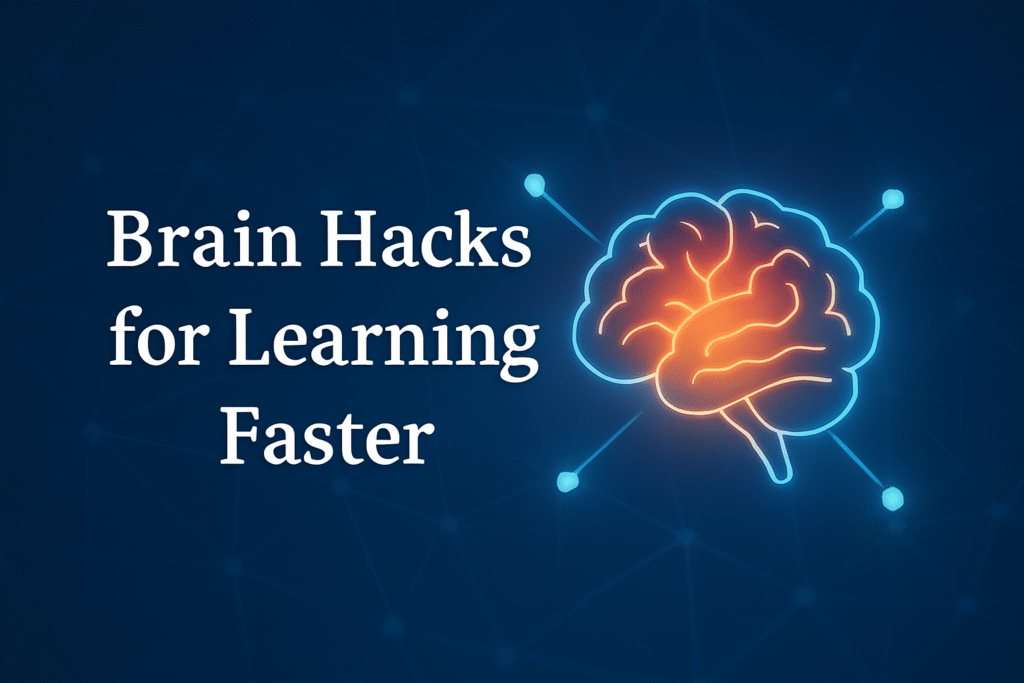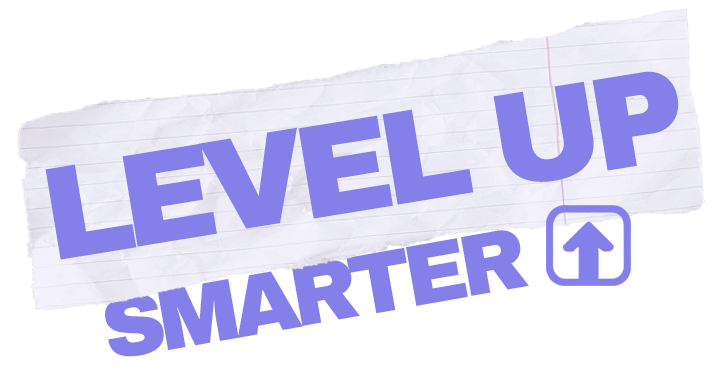 I’ve been stuck lately. Twenty tabs open, YouTube running in the background, books piled on my desk, and still no action. I kept telling myself I was learning, but in reality I was just consuming. The truth is I felt paralyzed.
I’ve been stuck lately. Twenty tabs open, YouTube running in the background, books piled on my desk, and still no action. I kept telling myself I was learning, but in reality I was just consuming. The truth is I felt paralyzed.
That started to shift when I watched neuroscientist Lila Landowski’s TEDxHobart talk Brain Hack: 6 Secrets to Learning Faster. Her framework is simple, practical, and backed by science. More importantly, it held up a mirror. I finally saw why I wasn’t making progress.
Here are her six principles, explained in plain English, and how I am applying them to my own journey but was too afraid to fully start.
Landowski emphasizes that attention is the gateway to learning. If your focus is scattered, your brain cannot encode new memories effectively.
My reality: I thought multitasking was efficient. In practice it’s why I wasn’t retaining anything. Watching videos while scrolling, researching while planning, it reminds me of a video by Justin Sung.
Justin Sung, a medical doctor and learning coach, explains in his video on encoding: “For every piece of content you consume, you need a strategy for how you’ll handle that information.” This reflects a core principle from cognitive psychology. Research shows that learning is not about passive exposure but about encoding the process of actively transforming new information into a form the brain can store and retrieve later.
Without encoding strategies like self-testing, summarizing, or teaching the material to someone else (the Feynman Technique), most of what we consume fades quickly from short-term memory. Effective learning happens when we deliberately process information so it becomes part of long-term memory and can be recalled when needed.
There should be equal time spent consuming as well as encoding that data for longer term memory and recall for later use.
My shift: When I write, I now close every tab except one. I set a 25 minute timer. Just me and the page. That deep focus is already making me feel less foggy and distracted. Truthfully, that’s how I finished this article.
Brains learn best when they are awake and primed. Small jolts such as exercise, fresh air, or even a little stress boost the chemicals that help learning stick.
My reality: I often started work sluggish, trying to ease in with coffee and passive browsing. No wonder I was unfocused.
My shift: A quick walk or a round of breathing exercises before I sit down to write is my new ritual. It sounds simple, but it feels like flipping a switch from idle to ready.
Sleep is not optional. It is the consolidation factory where short term learning gets stored as long term memory.
My reality: Late nights watching just one more video killed my retention. I thought I was learning, but my brain was not finishing the job.
My shift: I am protecting seven or more hours of sleep as part of my work routine, not separate from it. If I want to build Level Up Smarter, my brain needs that nightly maintenance.
We do not learn through a single exposure of information. We learn by revisiting material over spaced intervals. Repetition literally rewires connections in the brain.
My reality: I kept chasing novelty, new books, new podcasts, new videos. I rarely revisited old ideas. We are always looking for that shiny object.
My shift: I have started reviewing one core idea daily. Instead of reading five new articles, I reread one note from yesterday and apply it. This ordinary repetition is what actually creates mastery.
Rest is not wasted time. Breaks allow the brain to stabilize and prevent interference between concepts.
My reality: I used to bulldoze through three or four hours, convinced I was being productive, only to feel drained and unfocused afterward.
My shift: I am taking breaks every hour to stand, stretch, walk, and reset. It feels counterintuitive, but I come back sharper, not weaker.
Mistakes are not failures. They are the feedback loops your brain uses to adjust, refine, and strengthen.
My reality: This is where I have been stuck the most. I did not want to publish a blog post, a social media update, or even a draft of my site because I was afraid it would not be good enough.
My shift: I am reframing mistakes as milestones. Every imperfect post I publish is proof that I am learning. Every stumble is wiring my brain for growth.
Lila Landowski’s framework is powerful on its own, but it connects with another concept that completely reshaped the way I think about learning. That concept is encoding.
As Dr. Justin Sung, a medical doctor and learning coach, explains in his video on the topic: “For every piece of content you consume, you need a strategy for how you will handle that information.”
This is not just advice. It is supported by decades of cognitive psychology research. When we encounter new material, our brains do not automatically store it. Instead, it first sits in short term memory, which is fragile and easily lost. To make it useful, we need to encode it. That means actively processing and reorganizing it so it gets transferred into long term memory.
Encoding strategies include:
Landowski’s principles directly support this process. Attention ensures the information makes it into working memory. Repetition strengthens the neural pathways that encode it. Mistakes create the corrective signals the brain uses to refine and solidify learning.
Taken together, Sung’s practical insight and Landowski’s neuroscience framework paint a clear picture. Learning is not about how much you consume. It is about how well you encode and revisit what matters.
These six brain hacks and the principle of encoding are more than tips. They are the foundation of real learning.
Attention. Alertness. Sleep. Repetition. Breaks. Mistakes. Encoding.
When I apply them, the fog lifts. Suddenly, building Level Up Smarter does not feel overwhelming. It feels possible.
If you have been feeling stuck, pick one principle today. Do not overthink it. Close your tabs and focus for 25 minutes. Take a walk before your next study session. Review one note instead of chasing five new ones. Or, like me, hit publish on something imperfect.
That is how learning happens. Not in theory, but in practice.
✦ Inspired by Lila Landowski’s TEDx talk Brain Hack: 6 Secrets to Learning Faster, Backed by Neuroscience and Dr. Justin Sung’s work on encoding.I’ve

Level Up Smarter | ©2025 All Rights Reserved.